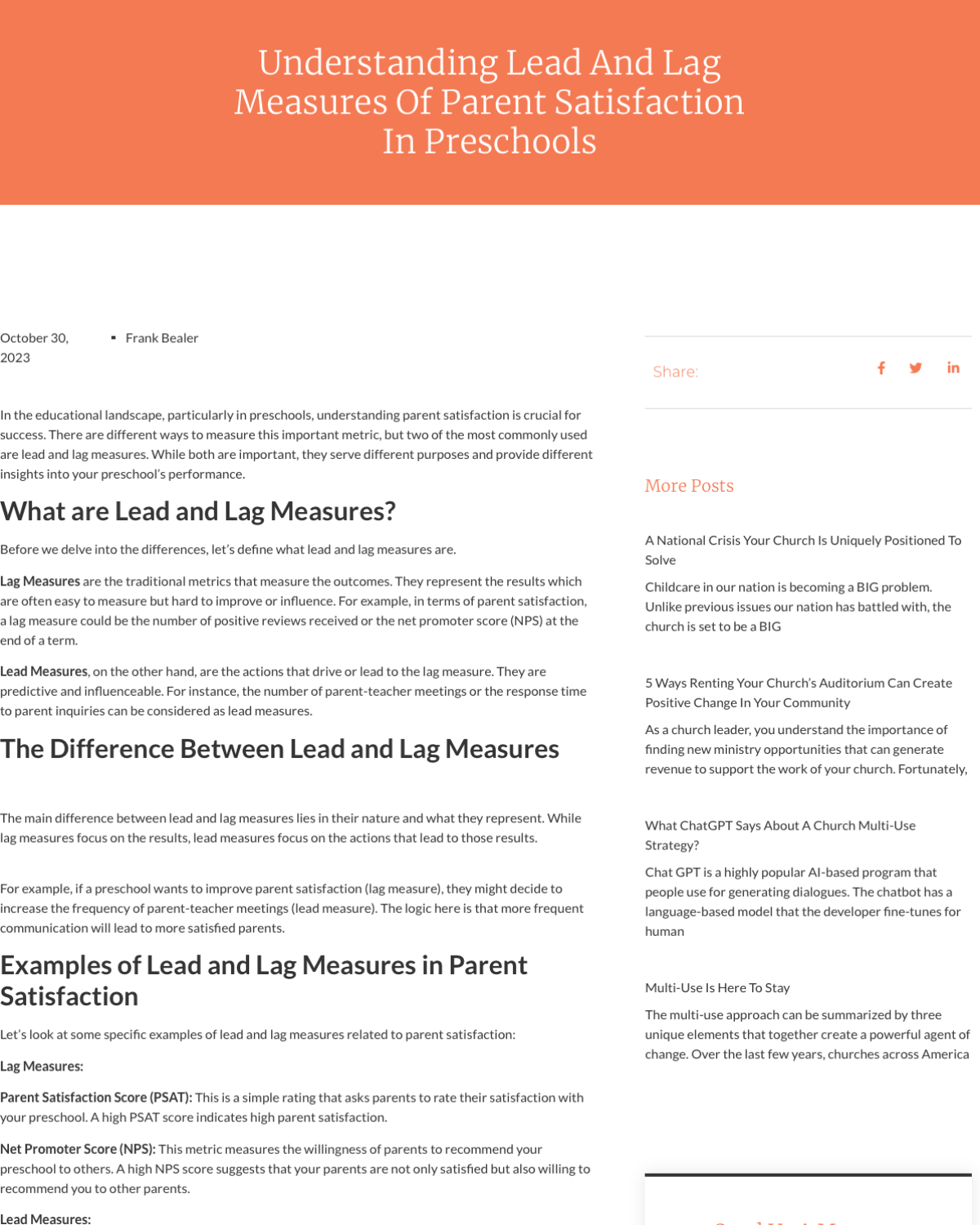Childcare in our nation is becoming a BIG problem. Unlike previous issues our nation has battled with, the church is set to be a BIG part of the solution.
The tension has always been between cost and quality. Many churches have facilities that are uniquely positioned to serve families throughout the week.
In a recenter interview featured on Axios Today, a discussion around recent reports indicates that we must see changes to our childcare system.
Read more from a recent interview with Axios Today:
NIALA: So the government has a measure for if childcare is considered affordable. The Department of Health and Human Services says childcare is considered affordable if it costs families no more than 7% of their income. How much is the average American parent spending of their income on childcare?
JENNIFER: According to a recent survey by Care.com, 51% of parents are spending 20% of their income on childcare well above that 7% threshold.
NIALA: So Jennifer, The Wall Street Journal reported there were about 58,000 fewer daycare workers in the U.S. last month compared to February 2020. What else do we know about the shortage for childcare workers?
JENNIFER: Childcare workers are a distinctive category because, well, most other categories of labor came back after the pandemic to equal numbers. There’s that missing 58,000 childcare workers, which means that, it’s really, a seller’s market, if you will, for people who want to provide childcare, particularly in people’s homes. Now the, market has become a bit warped and distorted as a result of this, people who are teachers, nurses, in other, professions that are, parenthetical to childcare are switching over because they can make more money, in a job with perhaps better working conditions by going to, to provide childcare either for an individual family or for a group of families. Who are increasingly teaming up to do, uh, share care situations. If you have somebody who has a teaching degree, who’s a trained nurse or has a skill, like a language or an instrument that they can teach the child, they in turn command higher rates. Which pushes up the rates overall and increases that national average, which as you mentioned has skyrocketed well beyond the rate of inflation.
NIALA: What about parents who can’t afford to pay for childcare? What are they doing? What are their options?
JENNIFER: It’s the traditional options, find a family member who’s willing to do it, cobble together some arrangement that is some way affordable. Employers notably are recognizing this big pickle that families are in and more employers are starting to subsidize childcare, which is a good sign. This is increasingly a demand in the market. companies are finding that that’s the best way to attract and retain workers.
Now, interestingly, the CEO of UrbanSitter told me that not only are the kind of white collar corporate type jobs that you think of as offering, uh, subsidized childcare. But it’s, it’s, you know, traditional blue collar companies as well, because companies that operate, uh, distribution warehouses and manufacturing plants, they’re really hit hard by this too because the wages that they offer aren’t so different from the ones that childcare providers are getting. So, in a positive trend from all this, uh, difficult news, it’s a good sign that companies are recognizing that this is a central issue that they need to address.
Frank


